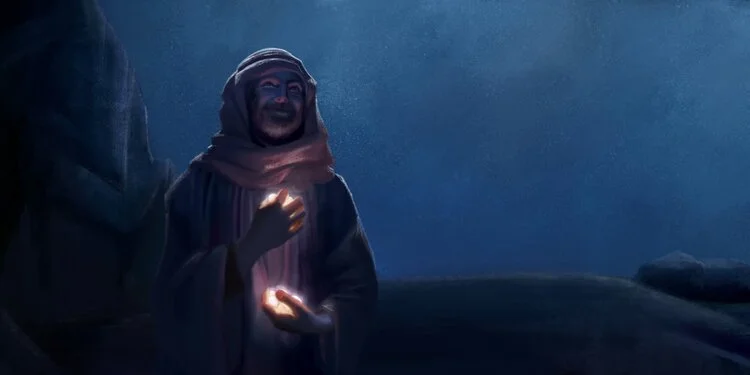I Think You Can Do This
In Ether 2, the Brother of Jared approaches God. He built boats according to the Lord’s exacting instructions, but he has noticed two problems: Problem 1: These boats are fully enclosed, and the people in them are going to have a hard time breathing. Problem 2: These boats are fully enclosed, and the people in them are going to have a hard time seeing.
God meets him at the top of the mountain tells him to go ahead and cut holes in the top and bottom of the boat that can be very tightly stoppered when the sea is calm. That way they can get fresh air. (This solution terrifies me, but the Brother of Jared seems to have been chill with it.) Jesus didn’t tell him what to do about the light, though, so after making the tightly stoppered holes, the Brother of Jared hikes back up the mountain to say, “And about the light?”
“What do you think?” Jesus says.
I think, had I been the Brother of Jared, I may have been annoyed by this. I might have thought, “I don’t want to have to keep climbing this mountain when you can just tell me the answer already.” If the Brother of Jared thought this, he did not say it. Instead, he walked back down the mountain and smelted beautiful stones, so shiny and clear they looked like glass. He walked back up the mountain for the third time and said, “Touch these, Lord, and they will be filled with light” (Ether 3). So the Lord reached out to touch them and filled them with light.
The Brother of Jared Holding Shining Stones, by Normandy Poulter. I know I just used this picture (because I also just talked about the Brother of Jared), but I love it a lot, so I’m using it again.
I keep thinking about this, because I don’t think that everything God touches radiates physical light. I think He’s perfectly capable of touching stones without changing their physical qualities at all. So the light was a product of God’s power but also of the Brother of Jared’s creative faith. He said, “I think you can do this,” so God did it.
It’s what happened to the woman with the issue of blood too (Matthew 9). When she pressed through the crowd to touch the hem of Jesus’s robe to be healed and Jesus said, “Who touched me?” his disciples laughed. “Everyone, Lord,” they said. “Literally everyone is touching you.” The thing is, though, the reason that detail is important is because not everyone who felt Jesus’s clothes was healed—but she was. She said, “I think you can do this,” and so God did.
In communication theory, there’s a concept called “social constructionism.” The base idea is that we talk the world into being. The world as we know it—physical, social, cultural, etc.—wouldn’t exist if we couldn’t communicate with each other, if we couldn’t make meaning collectively. We couldn’t decide what was polite together, we couldn’t construct buildings, there would be no consensus about what socks were for. We collectively speak our world into being, just as God began with the Word in Genesis. When we engage in creative faith, as the Brother of Jared and the Woman with the Issue of Blood did, we participate in that ongoing creation. They said, “I think you can do this,” and so God did it. He problem solved with them and accepted their proposed solutions, responded to the flow of the faith of this Book of Mormon man and New Testament woman. He rewarded their creativity by allowing them to be co-creators with Him.
In Hawaii, where I grew up, people have prophetic dreams. These dreams give them hope or warn them of danger to come. Many of the Pacific islanders I knew also see ghosts. When we moved next to a graveyard, these friends expressed concern for us. “Don’t worry,” my mom told them. “We’re haole [white]. We don’t see spirits.” (They were comforted but also advised that she plant ti leaves around the border of the house, which we did.) In the early days of the Church of Jesus Christ of Latter-day Saints, there were a lot of angel appearances, a lot of healings and speaking of tongues. These miraculous brushes with a reality higher than ours happens—they just don’t happen to me. I’ve never had a prophetic dream. I’ve never brushed by any deceased ancestors, seen an angel, participated in a clearly miraculous healing, or spoke in tongues.
There are potentially a lot of reasons for this, but I think one of them is that I don’t expect these things. If I had a prophetic dream, there’s a strong possibility I would write it off. If I saw a ghost, I’d probably chalk it up to sleep deprivation. Which is sad, because I want to give God as many ways to talk to me as possible. I want to be creative in my faith, because I want angels and dreams and long-lost ancestors. I want miraculous healings and glowing stones. I want miracles, and the only way to get them, I think, might be to say, “I think you can do this,” and watch while He does.
